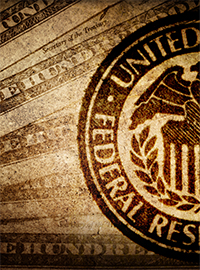| The Fed Has No Business Entering the Real-Time Payment Market |
 |
|
By Timothy H. Lee
Thursday, August 08 2019 |
When most Americans think of the Federal Reserve, to the extent that they do at all, they naturally associate it with its primary role of stabilizing our currency through regulation of the nation’s money supply. And even on that task, the Fed’s performance record is debatable, to put it charitably. Given its spotty record in accomplishing its primary job, it would strike most Americans as bizarre to learn that the Fed might consider expanding its role in American life by entering the realm of real-time payment networks between people and financial institutions, a job the private sector already manages just fine. Yet believe it or not, that’s precisely what it’s considering. It amounts to yet another counterproductive government “fix” for something that isn’t broken, in addition to the fact that the idea contravenes federal statute. Congress should therefore intervene if the Fed doesn’t reconsider quickly. To provide some background, the field of instant electronic fund transfers is one already handled by the Clearing House Payment Co., which is a private, U.S.-based financial utility operated by over twenty banks, including such familiar names as Bank of America, BB&T and PNC Financial Services. Broadly stated, it exists to provide speedier financial transactions between customers and financial institutions. The Clearing House system started in November 2017, and today covers approximately half of all U.S. accounts. It aims to possess a universal real-time payment system by next year, although the Fed’s sudden desire to intrude naturally jeopardizes that task. If you’re wondering why the Fed should insert itself into that functioning field, join the crowd. Nevertheless, in October of last year the Fed floated a proposal to enter the field of instant electronic fund transfers, which would compete with the Clearing House system, and solicited public comment. Then this week, Fed Governor Lael Brainard announced its decision to go ahead with the scheme. As an initial matter, as noted above, the idea violates federal law. Under the Monetary Control Act of 1980, the Fed may only enter the field to offer services “that other providers alone cannot be expected to provide with reasonable effectiveness, scope, and equity.” That obviously isn’t the case, so the proposal falls flat as a legal matter. Even assuming that the proposal complied with federal law, however, when was the last time that a federal bureaucracy improved a product or service that it began providing? On that question, Gallup reported in its annual measure earlier this year that trust in government has reached an all-time low. “The public’s trust in government’s handling of both domestic and international issues,” Gallup announced, “has been severely breached, reaching record lows in the latest polling.” So when the federal government isn’t trusted to fulfill even its existing tasks, what reasonable person would expect it to enter and improve a field in which the private sector performs perfectly well? Beyond the inefficiency argument, the Fed’s proposal suffers numerous other defects. First, private companies would automatically suffer a disadvantage when forced to compete against a government entity that can tip the scales in its own favor and leverage the power of the state in its favor, as economist Stephen Moore observes: [N]o private company wants to compete with the Federal Reserve. No private firm can safely charge as low a price as the Fed or absorb high costs. The Fed has an obvious advantage in any venturing into activities now conducted by private lenders: It has effectively the lowest borrowing costs in the world because the full faith and credit of the U.S. government stands behind it. The Fed can’t go bankrupt and by its enormous size and stature is the behemoth in the banking universe. Perhaps even worse, as all too many Americans have become aware in recent years, a government entity entering this field creates an enormous opportunity for politicized misbehavior by rogue bureaucrats or vindictive elected officials. To cite a familiar example, recall “Operation Choke Point,” the 2013 Obama Justice Department initiative that pressured banks conducting business with firearms dealers, payday lenders or other perfectly legal businesses that the Obama Administration happened to disfavor. Imagine the potential ways in which politicized government officials could use a new Federal Reserve real-time payments system to similarly help or hinder targeted businesses, and play favorites in the marketplace based on their political leanings. Meanwhile, the Fed acknowledges that its proposed competing system wouldn’t even become operational until 2023 or 2024. Until that time, the looming prospect of federal entry into this sphere would disrupt the functioning private market. Perhaps most ironically, current Federal Reserve officials complain about political leaders and pundits meddling in their affairs. But by affirmatively seeking to enter an existing marketplace far beyond its core task of monetary policy, the Fed betrays an inability to practice what it preaches. If they don’t correct course, Congress and the White House should correct it for them. |
Related Articles : |
























